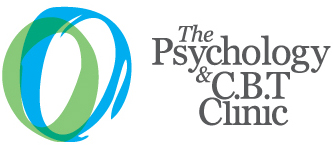 |
|
 |
Child TherapyThe term 'child' is used to refer to anyone aged between 0-12 years. Psychological therapy with children is different in structure to psychological therapy with adolescents and adults given that children may be unable to or unwilling to express their difficulties verbally. Resultantly a play-based approach or an approach that involves parents in at least part of the sessions is generally considered more appropriate and can be more conducive to change. |
|||
| Children may require therapy for a number of reasons. Significant life events such as the death of a family member or friend; separation/divorce; a change in home or school; or a traumatic event such as a car accident might lead to problems with behaviour, mood, sleep, appetite, and academic or social functioning. In some cases, it is not as clear what caused a child to suddenly appear different; however, if there are concerns about his or her psychological functioning it may be helpful to obtain an expert psychological opinion regarding whether they require ongoing monitoring or support. Children under the age of five could benefit from seeing a Psychologist who specialises in early childhood if there is s a significant delay in achieving developmental milestones such as walking, talking, and potty training, and if there are concerns regarding autism or other developmental disorders. |
 |
|||
Signs that a child may benefit from |
|||
|
|
||
|
|
||
|
|
||
|
|
||
|
|
||
|
|
||
|
|
||
|
|
||
|
|
||
| Is psychological therapy with children different in structure to therapy with adolescents or adults? | The structure of therapy and treatment utilised will vary depending on the chronological age of the child as well as on whether s/he has reached particular developmental milestones, particularly with regards to expressive and receptive language. Young children are generally unable to express themselves through talking therapy, therefore play-based therapy is used in order to facilitate the therapeutic process. In this manner children can re-enact any difficulties through play with the purpose of therapy being focusing on the themes of play in order to resolve any difficulties and improve wellbeing. For example, a child who has witnessed physical abuse may re-enact this in therapy through the use of figures residing in a dolls house. S/he may express painful feelings which can be processed during the sessions. With increasing age therapy becomes more similar to adult-based therapy which involves talking; however, a child will often be offered play-based items in sessions as they may choose to utilise them even if they are able to express themselves verbally. While confidentiality is essential in therapy with adolescents, our therapists will generally share session content with parents of children attending therapy unless there is a clear reason that this is not preferable. Most children are happy for a brief parent handover to occur at the end of each session or after a few sessions. This is particularly important in the case of Cognitive-Behavioural Therapy (CBT) approaches when children may be assigned tasks and would need the help of their parents in order to implement them. Parents are generally invited to the initial assessment with a child or adolescent and may be asked to attend a separate parent session in order to ensure that parent opinion as well as any relevant developmental and family history is obtained in order to ensure the best care for the child. Not all psychological therapists utilise this approach and may commence by immediately seeing the child individually. Taking a more holistic approach to assessing younger age clients is considered the gold standard and is used within international communities. The Psychology Clinic tends to comply with this approach given our extensive overseas training and work experience as well as the growing evidence that this leads to longer lasting changes after therapy. |
|||
| How would you assess my child? | Parents are generally invited to the initial assessment with a child or adolescent and may be asked to attend a separate parent session in order to ensure that parent opinion as well as any relevant developmental and family history is obtained in order to ensure the best care for the child. In some cases we may need to administer questionnaires to parents and also seek feedback from relevant professionals, such as teachers. For example, in the case of a query of Attention Deficit Hyperactivity Disorder (ADHD) we would always seek to complete standardised questionnaires from parents and school before considering a diagnosis. We will always ensure to adhere with national and international guidelines when assessing and treating your child. |
|||
| Are parents at times involved in all scheduled sessions? | Yes. In the case of a parent-child relationship difficulty (child behavioural difficulties only seen within the home environment) parent-child sessions are generally more helpful in resolving the difficulty. There are times when parents might be asked to attend without the child on an ongoing basis, perhaps as they may need parenting support. Some children who are anxious or depressed would need a Cognitive-Behavioural Therapy (CBT) approach and the parents would be required in sessions to ensure that any tasks are understood and completed out of sessions and also to help drill the CBT concepts to the child outside of therapy sessions. |
|||
Clinical Director
Specialism
Types of Therapy
Child Therapy
Adolescent Therapy
Adult Therapy
Parenting and Family Support
Psychological Assessment and Testing
Training
FAQ
Contact